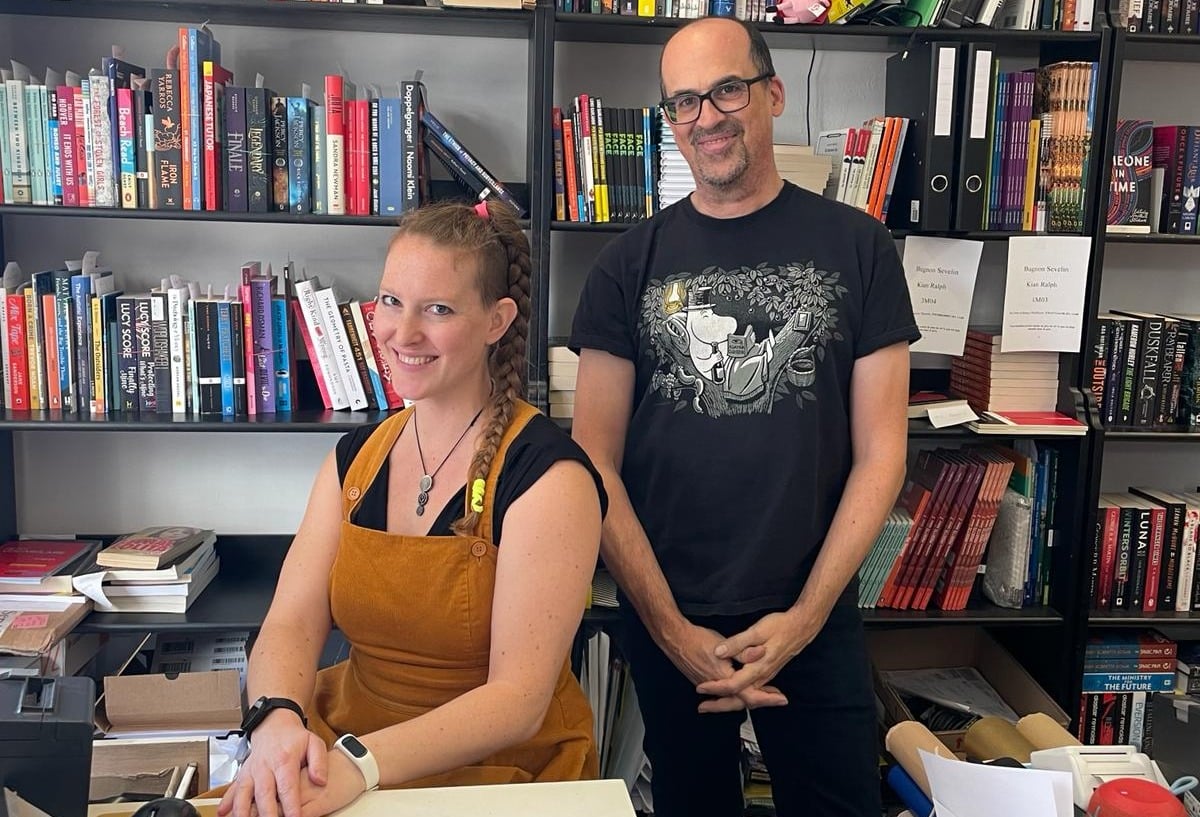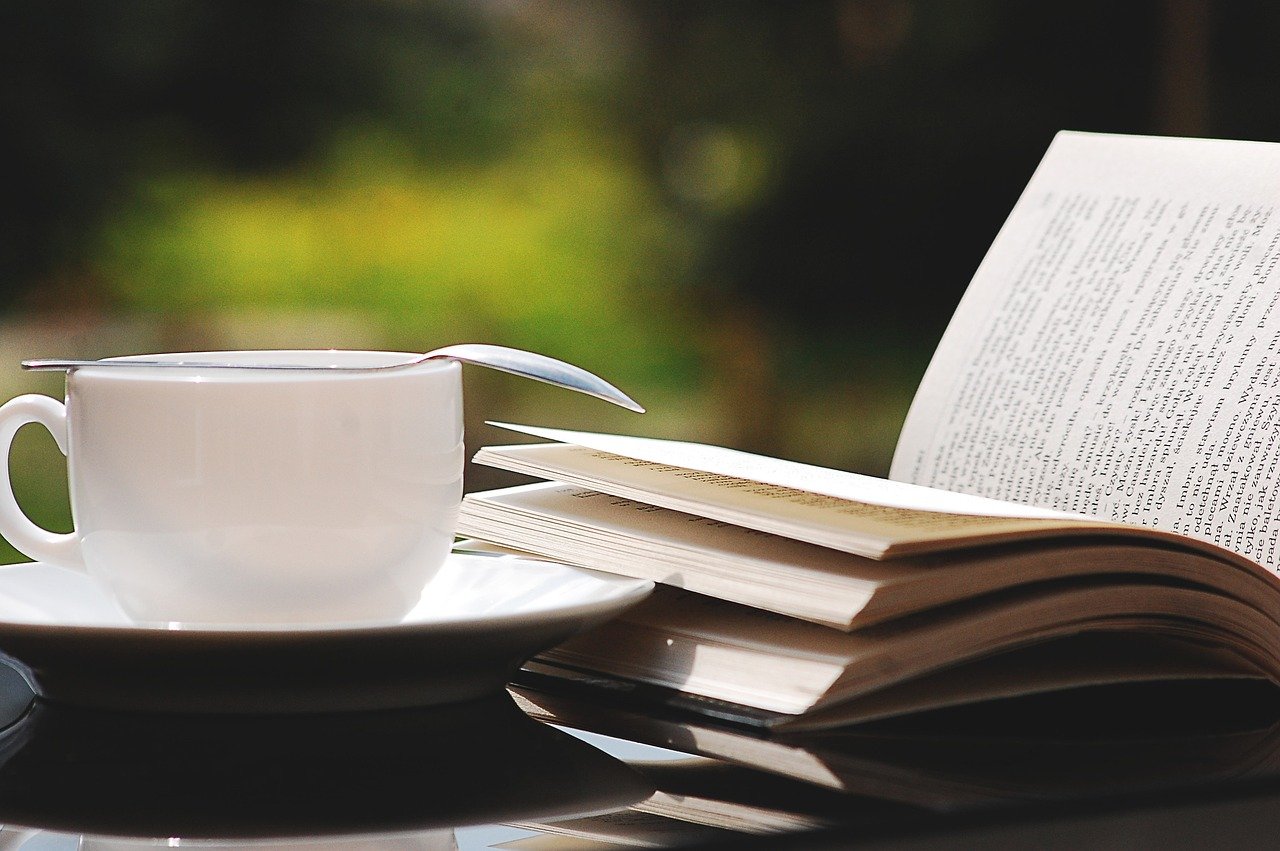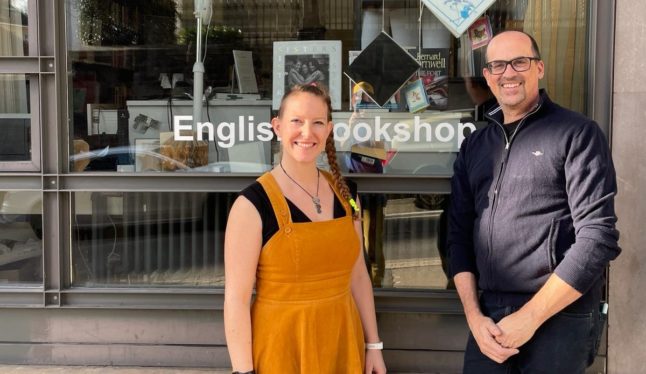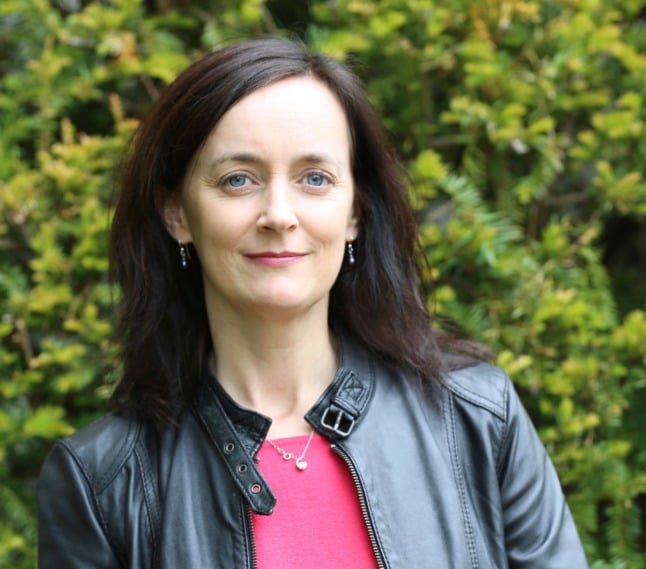Since the huge shift to online bookselling and e-books, it seems like a miracle that bricks-and-mortar bookshops have survived at all. Those that have weathered the storm have done so thanks to strong ties with their customers, as seen in Switzerland’s independent English-language bookshops in Zurich, Lausanne and Geneva.
When Matthew Wake and his colleague Rachel Bender of Books Books Books in Lausanne organised a 15th birthday tea party for the shop last November, they ran out of mugs pretty quickly. Seventy-five people turned up over a Saturday afternoon, most of them familiar faces.
“These are people who love reading and have an emotional attachment to the shop,” Matthew explains. He describes the shop as an anchor for English speakers in the city. “You need places like that when you move to a new country.”
Books Books Books benefits from a close connection to the literary festival Le livre sur les quais in nearby Morges, which has been running for a similar length of time. Big names come to Morges every year, including the latest Booker Prize winner Paul Lynch.
“We had Paul in the shop for an event two years ago and when he won recently, we all knew him and celebrated the news.” Paul Lynch even judged the shop’s annual creative writing prize for Swiss high school students.

We, in this case, is the community of regulars who attend events and keep in touch with the shop. Over in Zurich, another community has grown around Pile of Books, a friendly bookshop up a quiet side street in the trendy district of Wiedikon.
Ella Rosen works at the shop and enjoys organising different kinds of events to bring different groups in, from little kids to writers. “Part of what matters to me is to make people feel welcome because I feel this city doesn’t always do that.”
Coming up next month, Ella is organising a silent reading rave. “It’s a new thing. People can come in after closing time and we’ll all have a quiet reading session together.” Pile of Books has already successfully tried out a ‘shut up and write’ evening. After introductions, they set a timer and everyone works on their own writing.
READ ALSO: How hard is it to make friends in Switzerland?
‘Almost like a pub’
But it’s not all about attending events. Many customers appreciate a friendly exchange when they come in to browse. Stauffacher English bookshop in Bern boasts the city’s most extensive selection of English books inside the large flagship Swiss store.
“It’s always been like a bookshop within a bookshop up here on the second floor,” Michael Yates of Stauffacher says. “We have our own identity and English-speaking staff. A lot of people just like to speak English for a change. Yesterday I had a chat with a customer about the American election. It’s almost like a pub where you come in and say hello.”
Customers in Stauffacher can also fill their shopping bags with British and American food, the top-selling item being Yorkshire Tea. “It’s nice for people to be able to buy the foods they miss, especially baking ingredients and chocolate.”
Book clubs go with the territory for Books Books Books, Pile of Books and the English bookshop at Stauffacher. At one stage, Books Books Books hosted seven book clubs but the pandemic broke that run.
The monthly reading circle at Stauffacher Bern is hosted by best-selling author and former employee Diccon Bewes. “Between ten and twenty people come in for the evening discussion in the shop,” Michael says.
“Another hugely popular thing is the children’s hour on the first Saturday of every month. We have lots of kids coming in with their parents to hear Joe Quinn read. They love him. But it’s also another way for people to meet and chat.”
‘Long-term connection with people’
Switzerland is home to a significant number of English-language authors, many of whom have a local following and hold launches and signings at Swiss bookshops. Florence Reisch-Gentinetta presented her new book “Expat Wife Happy Life” at Pages & Sips in Geneva last month.
Pages & Sips is the new kid on the block, open since September 2022. It is a hybrid bookshop and cafe, a successful formula in lots of cities. The shop boasts a highly literary location, across the street from the house where Jean-Jacques Rousseau was born.

Pile of Books in Zurich also offers coffee to customers – but on an informal basis when things are quiet. Ella Ronen enjoys when new people discover the shop for the first time.
“The shop is deceptively large. It’s very magical when you come in. There’s a moment of people’s eyes lighting up when they come in and realise that there is all this space and a seating area in the back.”
The story of Pile of Books almost closing illustrates the importance of the communities that have flourished around these independent bookshops.
The shop had been running for several years and had even made it through Covid when the previous owner announced his retirement. Word got out that the shop was closing, and customers were really disappointed – until one regular customer stepped in and bought the business. He put together the team that runs the place today.
For the staff and owners, it’s a labour of love. As Matthew Wake says, he feels incredibly lucky to work with books. “We love reading, we love books, we love talking about books. That’s a passion we have and it’s what gives us this long-term connection with people.”
A dynamic, up-to-date guide to Swiss society and current affairs, All About Switzerland ebook features a selection of 29 articles by Clare O’Dea. The articles were first published by The Local Switzerland from 2022 to 2024. The ebook is available on Amazon, Kobo and other retailers.




 Please whitelist us to continue reading.
Please whitelist us to continue reading.
Member comments